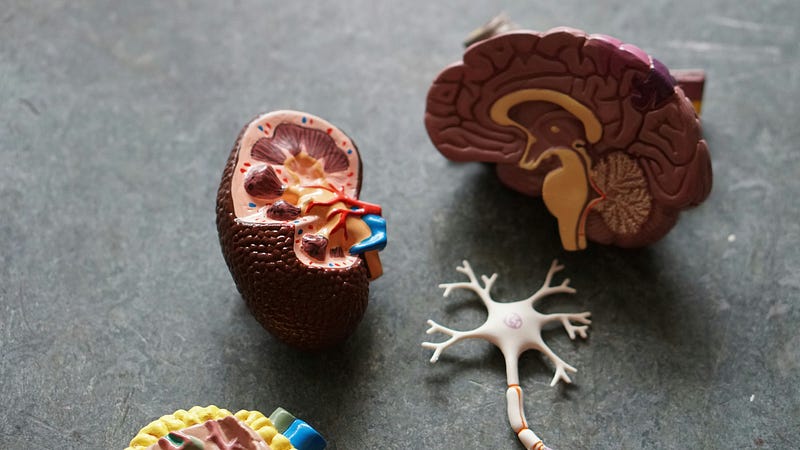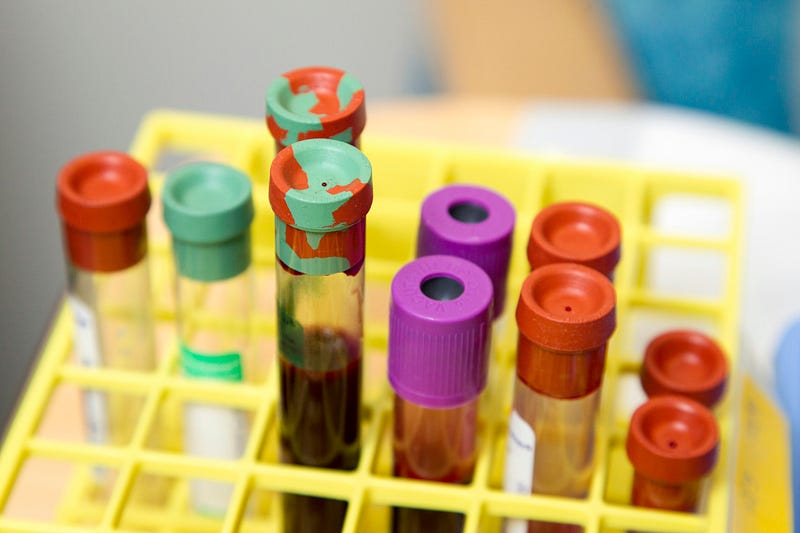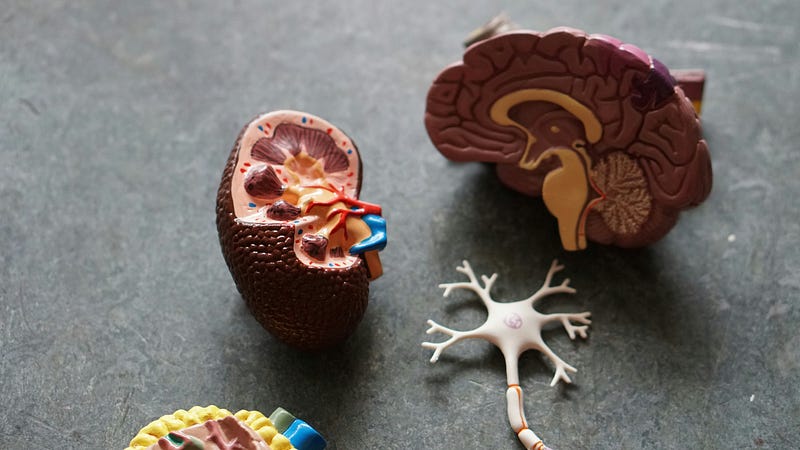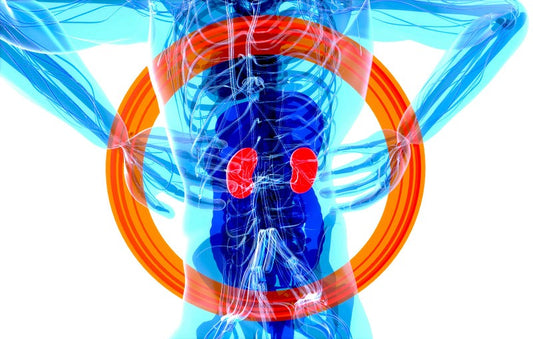The diagnosis of kidney health is crucial for maintaining overall well-being. Kidneys play an incredibly important role in filtering toxins and excess fluids from the body, and their proper functioning has a huge impact on our health. Therefore, it is important to know what test results may indicate kidney problems and where to seek help in case of concerning findings.
 Photo by Robina Weermeijer on Unsplash
Photo by Robina Weermeijer on Unsplash
Routine Check-ups for Kidney Disease Prevention
Kidney health is vital for overall well-being, so regular check-ups are crucial for preventing kidney diseases and detecting any potential issues early on. Here are a few tests that may be helpful in preventing kidney diseases:
-
Complete Blood Count: A basic test that can reveal any potential kidney functioning issues by assessing hemoglobin levels, hematocrit, and red and white blood cell counts.
-
Urinalysis: Urinalysis can detect the presence of protein, glucose, blood, or epithelial cells, which may indicate kidney problems. It can also provide information about the body’s hydration status.
-
Serum Creatinine Measurement: Measuring creatinine levels in the blood serum is one of the basic tests used to assess kidney function. An increase in creatinine levels may indicate reduced kidney filtration.
-
Estimated Glomerular Filtration Rate (eGFR): eGFR is an indicator that measures how quickly the kidneys filter blood. A low eGFR value may suggest kidney function issues.
-
Imaging Tests of the Kidneys: In cases of suspected serious kidney problems, a doctor may recommend imaging tests such as ultrasound, computed tomography (CT), or magnetic resonance imaging (MRI) to provide a more detailed assessment of the kidneys.
- Electrolyte Tests: Measuring electrolyte levels, such as sodium, potassium, or calcium, can provide information about the body’s electrolyte balance, which is important for kidney health.
Regularly undergoing these check-up tests can help in early detection of any potential kidney problems and enable appropriate preventive actions. In case of concerning results, it is advisable to consult a doctor or kidney health specialist for further diagnosis and management. Kidney health is crucial for overall well-being, so it is important to regularly focus on kidney health prevention and monitor their health status.
 Photo by National Cancer Institute on Unsplash
Photo by National Cancer Institute on Unsplash
When Should Kidney Test Results Cause Concern?
-
Elevated Serum Creatinine Level: Creatinine is a waste product of metabolism that is excreted from the body through the kidneys. A high creatinine level may indicate reduced kidney function.
-
Decreased Estimated Glomerular Filtration Rate (eGFR): eGFR is an indicator of how quickly the kidneys filter blood. A low eGFR value may suggest kidney function issues.
-
Presence of Protein in Urine: Finding protein in urine, especially if the result is above the normal range, may be a sign of kidney damage.
-
Abnormal Electrolyte Levels: Kidneys regulate the body’s electrolyte balance. Abnormal electrolyte test results may indicate kidney problems.
- High Uric Acid Level: Elevated uric acid levels in the body may be associated with kidney stones or other kidney problems.
Where to Seek Help in Case of Poor Test Results?
-
General Practitioner or Internist: In case of concerning kidney test results, it is advisable to schedule an appointment with a general practitioner or internist. They will be able to assess the test results, conduct additional tests, and recommend further action.
-
Nephrologist: Nephrologists are specialists who deal with the diagnosis and treatment of kidney diseases. If the test results suggest serious kidney problems, it is worth consulting a nephrologist.
-
Dietitian: Dietitians specializing in kidney health can help develop an appropriate diet plan to support kidney health. They can also advise on lifestyle changes aimed at improving kidney function.
- Nephrology Clinic: In cases of serious kidney problems, it is advisable to consult a nephrology clinic where advanced diagnostic and treatment methods are available.
 Photo by Brooke Lark on Unsplash
Photo by Brooke Lark on Unsplash
Dietitian support plays a crucial role in managing kidney problems for several reasons:
-
Diet Adjustment: A dietitian can help tailor a diet to the individual needs of the patient, taking into account the stage of kidney disease, dietary restrictions, and food preferences. This allows the diet to support treatment and prevent further deterioration of kidney health.
-
Optimization of Nutrients: Dietitian support enables the optimization of nutrient intake, such as protein, carbohydrates, fats, minerals, and vitamins, which is important for maintaining metabolic balance and kidney health.
-
Monitoring Sodium and Potassium Intake: Individuals with kidney problems may be required to limit their sodium and potassium intake to reduce kidney burden and control blood pressure. A dietitian can assist in monitoring the intake of these minerals and identify foods to avoid or limit.
-
Management of Weight Loss: In some cases, weight loss management may be necessary to reduce kidney burden and improve kidney function. A dietitian can develop a personalized dietary plan to help achieve weight loss goals.
- Patient Education: Dietitian support also includes patient education on proper diet and healthy eating habits in kidney diseases. Patients can learn which foods are beneficial for kidney health, how to read food labels, and how to prepare healthy meals.
Dietitian support is crucial for optimal management of kidney problems through diet adjustment, nutrient optimization, sodium and potassium intake monitoring, weight loss management, and patient education. This helps patients improve kidney function and overall health.
 Photo by Farhad Ibrahimzade on Unsplash
Photo by Farhad Ibrahimzade on Unsplash
Conclusion
Kidney tests are an important part of health diagnostics, and concerning results may require further evaluation and treatment. It is important to regularly monitor kidney health and respond to any concerning symptoms. In case of doubts or concerning test results, it is advisable to consult a doctor or kidney health specialist for appropriate management.
“Health is the greatest human value”
AnaskoMed, Your Dietitian & Nutritionist
AnaskoMed Clinic is based on EBM (Evidence Based Medicine) medicine based on facts and reliable sources. Learn more about how we ensure the quality of our content at www.anaskomed.clinic
Remember that the information in this article is not a diet or education tailored individually, so if you have any health problems or your diet is more demanding, use the option of individual dietary cooperation or contact your doctor before using it.




